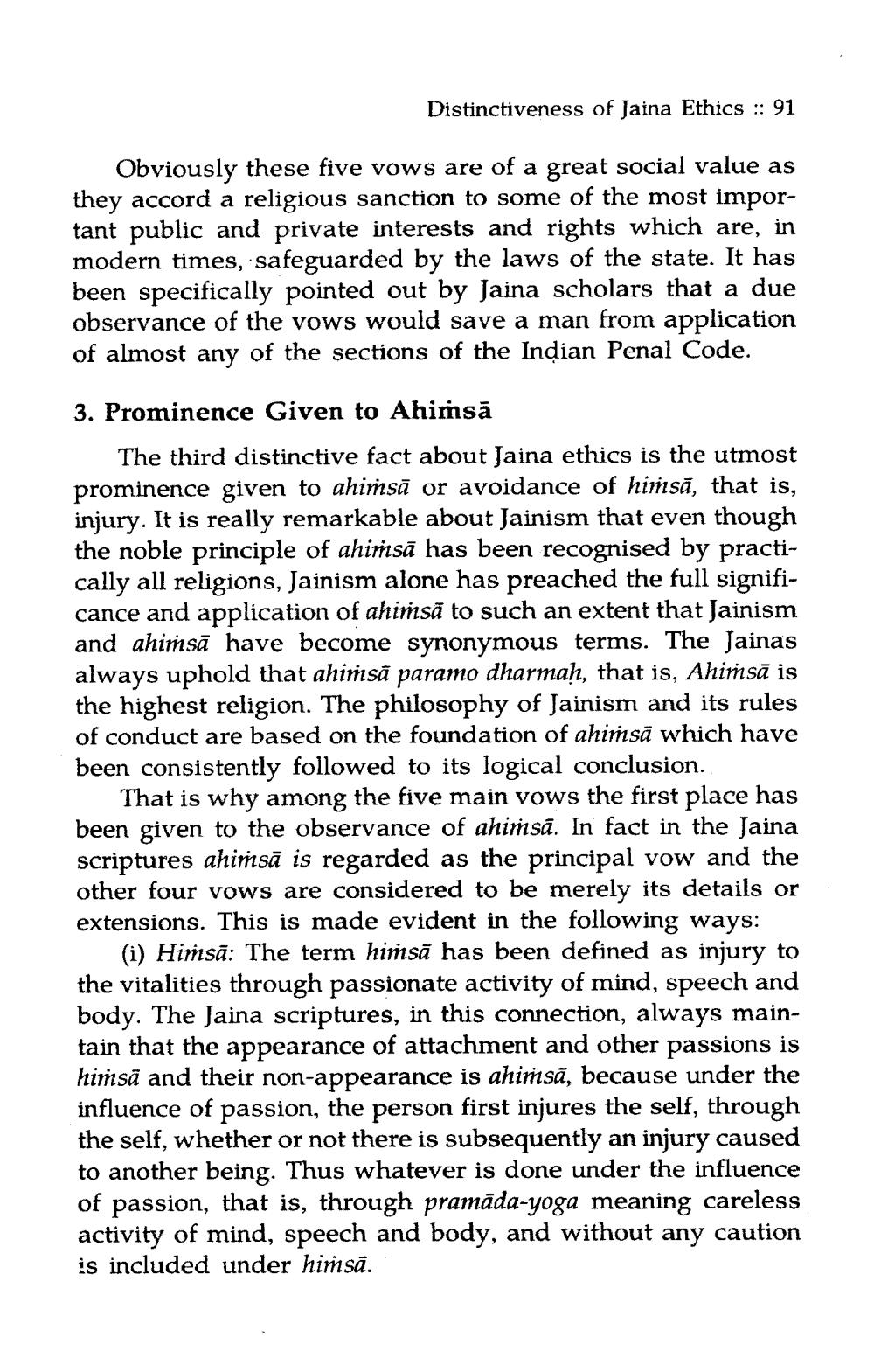________________
Distinctiveness of Jaina Ethics :: 91
Obviously these five vows are of a great social value as they accord a religious sanction to some of the most important public and private interests and rights which are, in modern times, safeguarded by the laws of the state. It has been specifically pointed out by Jaina scholars that a due observance of the vows would save a man from application of almost any of the sections of the Indian Penal Code.
3. Prominence Given to Ahimsā
The third distinctive fact about Jaina ethics is the utmost prominence given to ahiṁsā or avoidance of himsā, that is, injury. It is really remarkable about Jainism that even though the noble principle of ahimsā has been recognised by practically all religions, Jainism alone has preached the full significance and application of ahiṁsā to such an extent that Jainism and ahimsā have become synonymous terms. The Jainas always uphold that ahimsā paramo dharmaḥ, that is, Ahirsā is the highest religion. The philosophy of Jainism and its rules of conduct are based on the foundation of ahimsā which have been consistently followed to its logical conclusion.
That is why among the five main vows the first place has been given to the observance of ahiṁsā. In fact in the Jaina scriptures ahimsā is regarded as the principal vow and the other four vows are considered to be merely its details or extensions. This is made evident in the following ways:
(i) Himsā: The term himsā has been defined as injury to the vitalities through passionate activity of mind, speech and body. The Jaina scriptures, in this connection, always maintain that the appearance of attachment and other passions is himsā and their non-appearance is ahimsā, because under the influence of passion, the person first injures the self, through the self, whether or not there is subsequently an injury caused to another being. Thus whatever is done under the influence of passion, that is, through pramāda-yoga meaning careless activity of mind, speech and body, and without any caution is included under hiṁsā.




